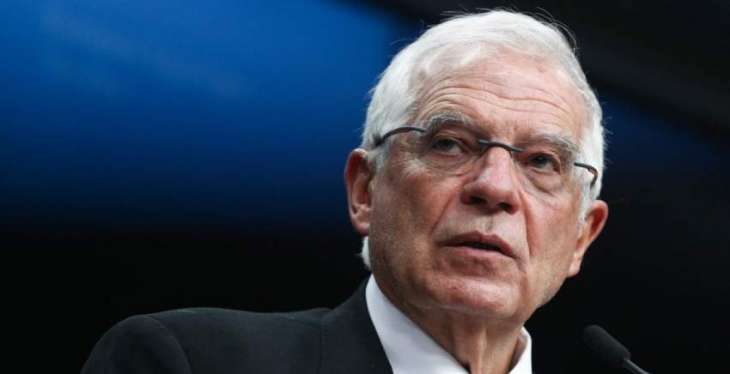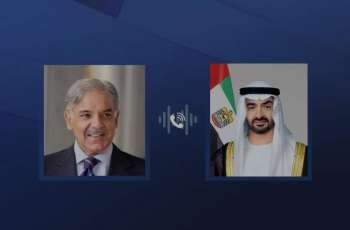The European Union does not plan to compete with China in building strong bilateral ties with African nations, and will instead forge its own strategy to strengthen relations between the two continents, EU High Representative for Foreign Affairs and Security Policy Josep Borrell said at a press conference on Monday after announcing a new long-term European Commission strategy on Africa that will also consider healthcare matters as the world battles the spread of the coronavirus disease, officially called COVID-19
MOSCOW (Pakistan Point News / Sputnik - 09th March, 2020) The European Union does not plan to compete with China in building strong bilateral ties with African nations, and will instead forge its own strategy to strengthen relations between the two continents, EU High Representative for Foreign Affairs and Security Policy Josep Borrell said at a press conference on Monday after announcing a new long-term European Commission strategy on Africa that will also consider healthcare matters as the world battles the spread of the coronavirus disease, officially called COVID-19.
The EU foreign policy chief, who spoke at a press conference in Brussels alongside Commissioner for International Partnerships Jutta Urpilainen, made these statements in response to a journalist's question regarding China's role in Africa, as the two commissioners introduced a joint communication on the EU's future relationship with the continent.
"Well, we don't see this as competition. You're saying China is very present in Africa, but the figures show that Europe is far more present. If you look at direct investment in Africa, stocks of capital invested in Africa, I think the difference is quite extraordinary. Europeans represent 220 billion Euros ($251.6 billion) and China just 38 billion euros ($45.5 billion), so you can see what the ratio is there," Borrell stated.
Urpilainen echoed this sentiment, adding that China was not the only interested partner in Africa.
"Of course, we know that China is not the only actor in Africa. There are some other actors as well, for instance, Russia, India, Gulf countries, the US and so on. And I think that this also explains why we as Europeans need to have our own strategy towards but also with Africa," the commissioner stated.
Both commissioners also faced questions on the EU's efforts to prevent the spread of the coronavirus disease in Africa. Urpilainen referred to funds transferred to the World Health Organization (WHO), which will also be allocated to African countries.
"I think it was around two weeks ago when the commission launched our extra financial support of around 300 million euros ($342 million) to the WHO and part of this funding is going to Africa in order to support their health care and their health security, so I think we have been very active and we will definitely try to support our partners in Africa," she stated.
Borrell, in turn, stated that the EU will continue to provide advice and support to African nations, adding that COVID-19 is not the only health challenge that many of the continent's countries face.
"Now we're concentrating on coronavirus of course, but there were health problems in Africa before and there will be after as well. But you can be assured that health cooperation will be a significant part of our cooperation; so health aspects will feed into this strategy," the EU's top diplomat stated, adding that the EU has already provided "billions of euros" to support health care infrastructure in 13 African countries.
According to the latest official data, there have been 88 confirmed cases of COVID-19 in Africa, 55 of which were reported in Egypt. So far there have been no coronavirus-related deaths on the continent.
Earlier in the day, the European Commission published a joint communication ahead of October's EU-African Union Summit that sets out a pathway for a stronger partnership between the two continents. The strategy focuses on increasing environmental sustainability in Africa and aiding the continent's digital transformation.




